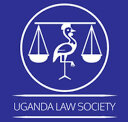Best Appeal Lawyers in Kampala
Share your needs with us, get contacted by law firms.
Free. Takes 2 min.
List of the best lawyers in Kampala, Uganda
About Appeal Law in Kampala, Uganda:
Appeal Law in Kampala, Uganda is framed around the principles of justice that afford every citizen the right to challenge the decision of a lower court in higher jurisdiction. If a party involved in a case is dissatisfied with the judgment, they have the right to take the matter to the Court of Appeal. It's noteworthy, however, that legal procedures, deadlines, and rules of evidence in appellate courts differ significantly from trial courts.
Why You May Need a Lawyer:
You may need a lawyer for various reasons when it comes to appeal law. Should you believe that the judgment of a lower court was unfair, a lawyer can assist you in understanding the grounds of appeal. Legal professionals can also help you navigate through the procedures, file a correct and timely appeal form, and represent you in appellate court. Even if you are the winning party, you might need a lawyer to argue why the lower court’s decision should be upheld if the other party appeals.
Local Laws Overview:
The key principles that govern appeal laws in Kampala, Uganda are premised on the Constitution of the Republic of Uganda and the Judicature Act. They mandate that an appellant should file an appeal within 60 days after the decree or order of the court. The appeal can be made on the grounds of points of law, points of fact, or both. However, the specifics of the procedure and the grounds on which the appeal can be made can be intricate and require legal guidance.
Frequently Asked Questions:
1. How long do I have to appeal a court decision?
Generally, you have 60 days from the day of the decree or order to file an appeal. However, in certain circumstances, the court may allow an appeal to be filed after the 60 days period.
2. Can I represent myself in an appeal?
While it is legally possible, representing oneself in an appellate court is not recommended due to the technical nature of the law and procedures involved. Mistakes can prevent the appeal from being heard or adversely affect the likelihood of success.
3. Can every decision by a lower court be appealed?
Not every decision can be appealed. Whether a decision can be appealed often depends on the nature and the magnitude of the case. Consultation with a lawyer will determine if your case is eligible for an appeal.
4. What if I cannot afford a lawyer for an appeal?
In Uganda, if you cannot afford a lawyer, agencies such as the Legal Aid Service Providers Network (LASPNET) can provide legal assistance. However, eligibility criteria may apply.
5. What happens after I file an appeal?
After an appeal is filed, a date will be set for the hearing. Both sides will have an opportunity to present their argument. The appellate court then makes a decision after reviewing the case.
Additional Resources:
Several organizations provide assistance with appeal law in Uganda: The High Court of Uganda, The Law Development Centre (LDC), Legal Aid Service Providers Network (LASPNET), and the Uganda Law Society are among some entities that offer tools, resources and legal aid services.
Next Steps:
If you require legal assistance in appeal, start by consulting a reputable lawyer who specializes in appeal law. They can guide you through the process, help understand the merit of your case and effectively represent you. If affordability is an issue, reaching out to legal aid organizations would be the next best course of action.
Lawzana helps you find the best lawyers and law firms in Kampala through a curated and pre-screened list of qualified legal professionals. Our platform offers rankings and detailed profiles of attorneys and law firms, allowing you to compare based on practice areas, including Appeal, experience, and client feedback.
Each profile includes a description of the firm's areas of practice, client reviews, team members and partners, year of establishment, spoken languages, office locations, contact information, social media presence, and any published articles or resources. Most firms on our platform speak English and are experienced in both local and international legal matters.
Get a quote from top-rated law firms in Kampala, Uganda — quickly, securely, and without unnecessary hassle.
Disclaimer:
The information provided on this page is for general informational purposes only and does not constitute legal advice. While we strive to ensure the accuracy and relevance of the content, legal information may change over time, and interpretations of the law can vary. You should always consult with a qualified legal professional for advice specific to your situation.
We disclaim all liability for actions taken or not taken based on the content of this page. If you believe any information is incorrect or outdated, please contact us, and we will review and update it where appropriate.















